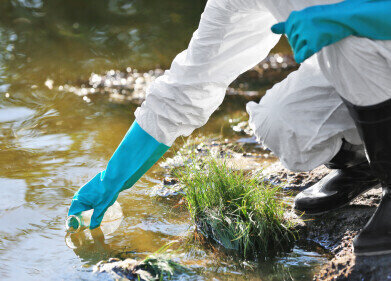Portable/Field Testing
Final Nail in the Coffin for Insecticide; Toxic to Bees?
Apr 05 2013
Westminster’s Environmental Audit Committee have recently called for a ban on neonicotinoids, pesticides dangerous to bees and other pollinators. The committee describes Defra’s approach to protecting bees as “extraordinarily complacent” and say “the weight of scientific evidence now warrants” a ban.
The Scottish Wildlife Trust has welcomed the committee’s report, calling on the UK Government to ban the use of three neonicotinoids which have been shown to be harmful to honeybees and bumblebees at sub-acute doses. The Scottish Wildlife Trust has been calling on both the UK and Scottish Governments to ban these dangerous neurotoxic chemicals since Autumn 2012.
Over a six month period, the Committee gathered written and oral evidence from leading scientists, environmental organisations such as Defra, and the pesticide industry - specifically concentrating on their opinion on the effects of neonicotinoids on insect pollinators. They have pulled no punches in the report conclusions, recommending Defra should prepare to introduce a moratorium on the use of imidacloprid, clothianidin and thiamethoxam on crops that are attractive to bees by 1 January 2014 - and they also recommend Defra supports such a proposal in the EU- which they have failed to do up until now.
As pesticide usage is a devolved issue, the Scottish Wildlife Trust has been campaigning for the Scottish Government to act independently of Westminster and lead the way in adopting the precautionary principle to ban use of neonicotinoids on outdoor crops in Scotland. This would benefit honey bees, bumblebees and other insect pollinators as well as agricultural ecosystems and farmers who rely on pollinators for crop and soft fruit production.
Up to now, the Scottish Government has gone along with Defra who have maintained that there is not enough evidence to impose a ban as none of the research reflects field realistic conditions. Yet they admitted to the Environment Committee that their own recently published field trial was seriously compromised because the ‘control site’ bees picked up traces of the neonicotinoid even though the experimental foraging crop had not been treated with the pesticide.
Scottish Wildlife Trust Chief Executive Simon Milne said: “The UK Government must now wake up to the fact that the only responsible course of action is to follow the advice of its Environmental Audit Committee and place an immediate moratorium on the use of these chemicals. There is sufficient and compelling evidence to apply the precautionary principle; we believe that waiting for the results of yet more field trials is pure obfuscation by Defra.
“Up to now the Scottish Government has sided with Westminster’s ill informed view, even though a growing amount of scientific evidence shows that these pesticides affect bees’ foraging behaviour, damage bee brain function and can persist for years in soils. Perhaps even more alarmingly we have yet to assess their impact on the rest of the food chain, so we call on the Scottish Government to do the right thing for our bees, our countryside, and our farmers who rely on natural pollination - impose a ban now.”
Digital Edition
IET 34.2 March 2024
April 2024
Gas Detection - Biogas batch fermentation system for laboratory use with automatic gas analysis in real time Water/Wastewater - Upcycling sensors for sustainable nature management - Prist...
View all digital editions
Events
Apr 22 2024 Hannover, Germany
Apr 22 2024 Marrakech, Morroco
Apr 23 2024 Kuala Lumpur, Malaysia
Apr 23 2024 Kintex, South Korea
Apr 23 2024 Edmonton, AB, Canada




-QED-Image.jpg)














